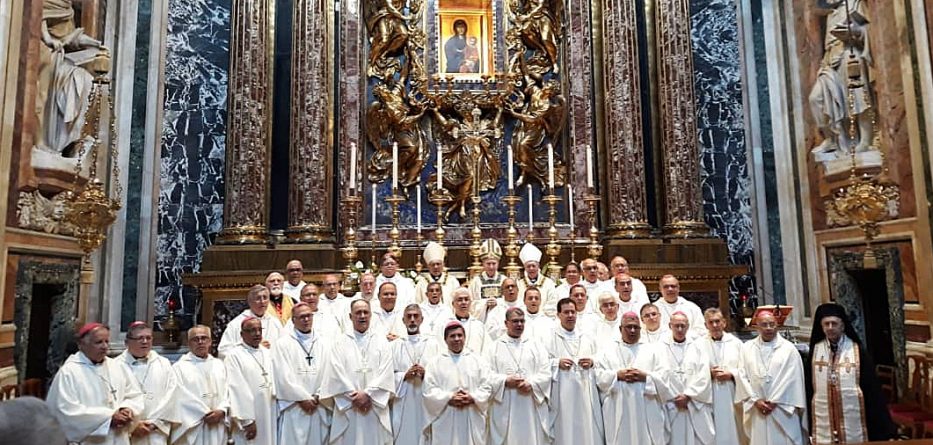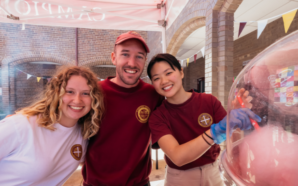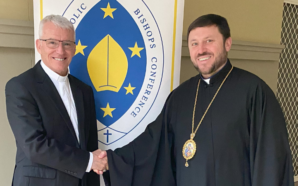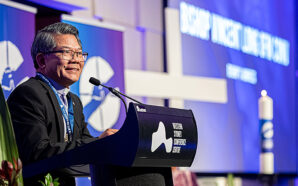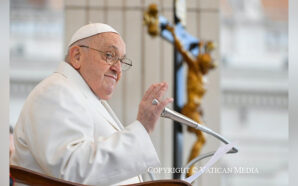Message from the 111th Ordinary Plenary Assembly of the Venezuelan Episcopate
EXHORTATION BY THE VENEZUELAN EPISCOPATE: “WHATEVER YOU DID FOR ONE OF THE LEAST OF THESE BROTHERS OF MINE, YOU DID FOR ME” (Mt 25:40).
1 – We, the archbishops and bishops of Venezuela, on the occasion of the 111th Ordinary Assembly, conscious of our spiritual and moral responsibility as citizens and pastors, address ourselves to the people of Venezuela, to whom we belong and of whom we are the servants. We approach the year 2019, placing our confidence in God, looking towards it as a favourable opportunity for the transformation for which the country is crying out – namely the restoration of the Rule of Law, according to the Constitution, and the rebuilding of Venezuelan society in dignity, freedom and justice for all. We wish to nourish the true hope of the people, sustained in the mystery of the Nativity, which celebrates the fact that the Son of God has become human and poor in order to make us more human and greater in mutual solidarity.
2 – As shepherds we have the duty to ask ourselves certain questions regarding the ethical aspects of the extremely grave situation we are currently living through. Our considerations spring from a moral evaluation in regard to the violations of human dignity, the disrespect of the common good and the manipulation of truth. Saint Oscar Arnulfo Romero, prophet and martyr of the Americas, once said, “If there is a conflict between the government and the Church, it is not because the Church is hostile towards the government, but because a conflict has already been generated between the government and the people, and the Church defends the people.” (Homily of 21.10 .1979). All human authority is transitory, and if it is legitimate in its exercise, it leads to a collective well-being, with special attention to the poor and excluded, thereby achieving a state of healthy coexistence in plurality and diversity. The Venezuelan people are living through a critical and extremely grave situation on account of the deterioration in respect for their rights and their quality of life, added to a growing poverty and the lack of anyone to whom they can turn. It is a sin crying out to heaven to seek to maintain power at all costs and presume to prolong the chaos and inefficiency of the last few decades. This is morally unacceptable! God does not will that the people should suffer by being subjected to injustices. Hence it is urgently necessary to heed the popular clamour for change, for a united effort to achieve the transition that has been hoped for and sought by the overwhelming majority.
3 – As we have already stated in our exhortation of 11 July 2018, “we reiterate that the convocation of 20 May (to elect the President of the Republic) was illegitimate, as is likewise the Constituent National Assembly established by the executive authority. We are faced with arbitrary rule, without respect for the guarantees laid down in the Constitution or the highest principles of the dignity of the people” (No temas, yo estoy contigo, No. 6). Consequently, the claim to be initiating a new presidential term of office on 10 January 2019 is illegitimate in its origin and opens the door to the nonrecognition of the government, since it lacks democratic support in justice and law.
4 – In this present political, social and economic crisis, the National Assembly, elected by the free and democratic vote of the Venezuelan people, is currently the sole organ of public authority with the legitimacy to exercise its powers with sovereignty. In fact, three years ago (on 1 December 2016) The Vatican Secretary of State Cardinal Pietro Parolin called for the restoration as soon as possible to the National Assembly of its role, as envisaged in the Constitution. The vote of confidence that the Venezuelan people has conferred on it should now be recognised in the fulfilment of the duties of its deputies in devising and promulgating the laws which the country needs for the re-establishment of democracy and the return to decency and honesty in the administration of the public purse. Pope Francis, in his Message for the World Day of Peace this year, reminds us: “Political office and political responsibility thus constantly challenge those called to the service of their country to make every effort to protect those who live there and to create the conditions for a worthy and just future. If exercised with basic respect for the life, freedom and dignity of persons, political life can indeed become an outstanding form of charity.” (January 1, 2019).
5 – We Venezuelans cannot simply be spectators of what is happening in our country, because we are citizens and, as such, actors of the first order. The defence of liberty has cost much blood and many sufferings, to view from outside what the majority rejects: the politics of hunger, political persecution military and political repression, political prisoners, torture, corruption, inefficiency and ineffectiveness in public administration. As citizens and as institutions it is up to us to assume the responsibilities that belong to us to improve the present situation and rescue the country, with its values and potentialities. This demands the involvement of all sectors of society, in encouraging creativity and proactive behaviour on the part of many people in the search for solutions.
6 – As Pope Francis says, we need to work together to find paths of “concord” and understanding, of union among the Venezuelan people, of responses to the many problems and defence of human rights that will enable us to overcome the crisis and attend to the needs of the poorest. Who will God bless in the present critical situation in Venezuela? The answer that Jesus gives us is clear, profound and challenging: “Come, you blessed of my Father… for I was hungry and you fed me, thirsty and you gave me a drink, a stranger and you welcomed me, naked and you clothed me, sick and you visited me, in prison and you came to see me” (Mt 25:34-36). This is a pressing question for all people of goodwill, and the response to it should move us to effective action.
7 – We are conscious that whatever we do for the for the least of our brethren, we do for Christ, and so as Church we are committed first of all, in our dioceses and parishes, to continue helping so many of the weakest and most defenceless within the country to survive, and also those who have emigrated in search of work and better conditions of life and in search of refuge and asylum. In the second place we are committed to continue working for the defence and promotion of human rights, in particular of those who lack everything, of those threatened with death, of those persecuted and deprived of liberty. In third place we propose, with still greater energy and determination, to continue developing training and organisation programmes that will enable the recovery of the democratic institutions and the rebuilding of the country in a peaceful manner. All this framed within the process of an evangelisation that promotes the values of truth, authenticity, justice, solidarity, peace, reconciliation and fraternity.
8 – We have many reasons to thank individuals and institutions. We thank our Holy Father Francis for his constant closeness and concern for our country. On 7 January 2019 in his Address to the members of the diplomatic corps accredited to the Holy See, he stated: “I desire for our beloved Venezuela that peaceful and institutional ways may be found to resolve the political, social and economic crisis, ways that make it possible to assist above all those who have been affected by the tensions of these years and offer all the Venezuelan people a perspective of hope and peace.” We also thank the Churches and Governments of many different countries for their solidarity, and their concern for those of our countrymen who, as a result of the crisis, have felt forced to leave the country in search of better conditions of life. We appreciate the pastoral concern and solidarity shown day by day by the priests, deacons, religious sisters and lay people and likewise the many initiatives being pursued in this field by Caritas at the national, diocesan and parish levels, by the Justice and Peace commission and the local human rights representatives, and by other organisations and associations. We invite the sponsoring of initiatives and projects on behalf of the people by our brethren of other churches and other religions, by the public and private institutions, by business people, professionals, artisans and workers in order to work for peace and for a better country.
9 – As believers, let us cultivate both personal and community prayer. Together with Mary, we proclaim that the mercy of God is from age to age upon his people, because the Lord “puts forth his arm in strength and scatters the proud hearted. He casts the mighty from their thrones and raises the lowly” (Lk 1: 51-52). Let us learn from Mary, our Mother, that you, Lord Jesus, are the Alpha and the Omega, the beginning and end of our existence, our bread for the long journey, the fullness of our joy and our lasting peace. Amen.
With our blessing,
The archbishops and bishops of Venezuela
Caracas, 9 January 2019.
The exhortation has been translated into English by Aid to the Church in Need. The original Spanish version can be read here.
With thanks to Aid to the Church in Need.




